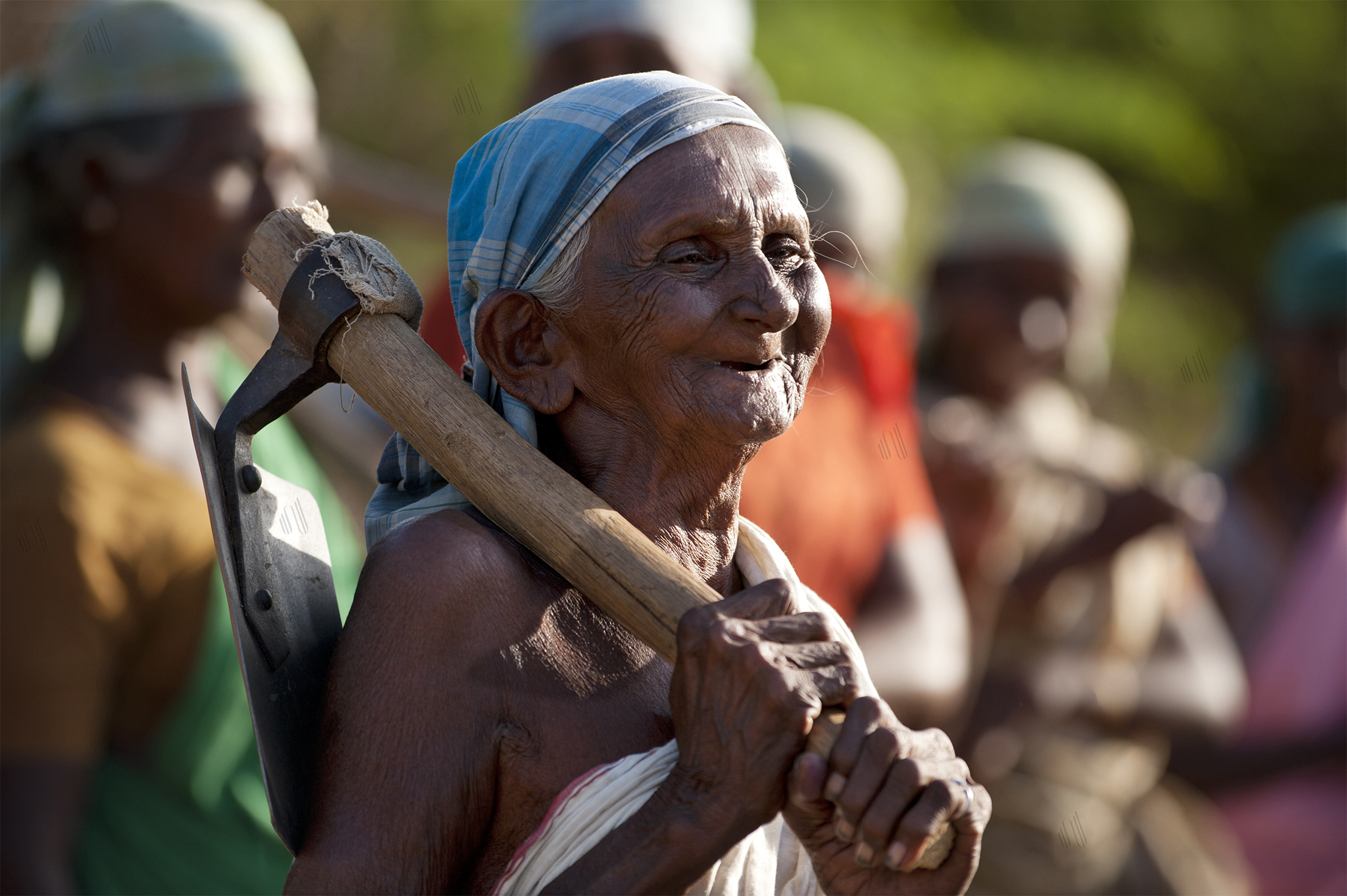
Pastoral Prosperity
The State Government’s support for animal husbandry has revitalised village economies and transformed
the lives of the rural poor.
“The future of India lies in its villages,” said Mahatma Gandhi, arguably India’s first champion of rural self-reliance. This Gandhian concept of making rural India self-sustainable for the overall growth of the country is at the centre of various farming and livestock related programmes in Tamil Nadu. The rearing of cattle and poultry has, for centuries, been an important economic activity in the State’s rural areas. Almost all rural households in the State have at least one head of cattle, or a goat or some poultry, and this effectively takes care of the family’s own day-to-day dairy and poultry product requirements, aside from being an income-earner. The efforts of the State’s Animal Husbandry Department to promote the latest advancements in this field have paid rich dividends, offering an additional revenue stream to farmers and other rural workers who have historically struggled to make both ends meet, given the vagaries of the weather and uncertainty in agricultural production.


Livestock breeding is also an eco-friendly way of life, helping enrich degraded soils with organic manure that promotes the growth of good bacteria and provides the essential nutrients to the agricultural fields.
Tamil Nadu’s villages have become key sourcing centres for milk, meat and poultry products for the rest of the country. Massive urbanisation has pushed up the demand for animal products both within the State and in the neigbouring States. Animal husbandry is, thus, a key driver of the State’s economy, with the gross value added from livestock products touching over Rs 60,700 crores in 2017-18. Cross breeding of cattle and grading of buffaloes have led to an increase in milk production in the State. Tamil Nadu ranks among the top ten milk producing states of the country with a daily production of 206 lakh litres per day in 2018. The estimated meat production (including poultry meat) was 6,03,352 tonnes during 2017-18.

Top producer
The poultry farms, apart from contributing to enhance the meat production, are also instrumental in making Tamil Nadu the top egg producer in the country. During 2017-18, about 1,741.61 crore eggs and 440.62 tonnes of poultry meat were produced by the State.
Research facilities of the State’s Animal Husbandry Department, equipped with cutting edge technology helped the farmers increase their production. These research centres have managed to improve the milk yielding capacity of cattle through selective cross breeding. High quality germ plasm is being segregated for artificial insemination, which improves both the yield and adaptability of animals to particular climatic conditions. The research team also prevents major disease outbreaks among cattle by developing and distributing preventive vaccines. The innovations of such centres are made available to the farmers by the Animal Husbandry department, without much delay.
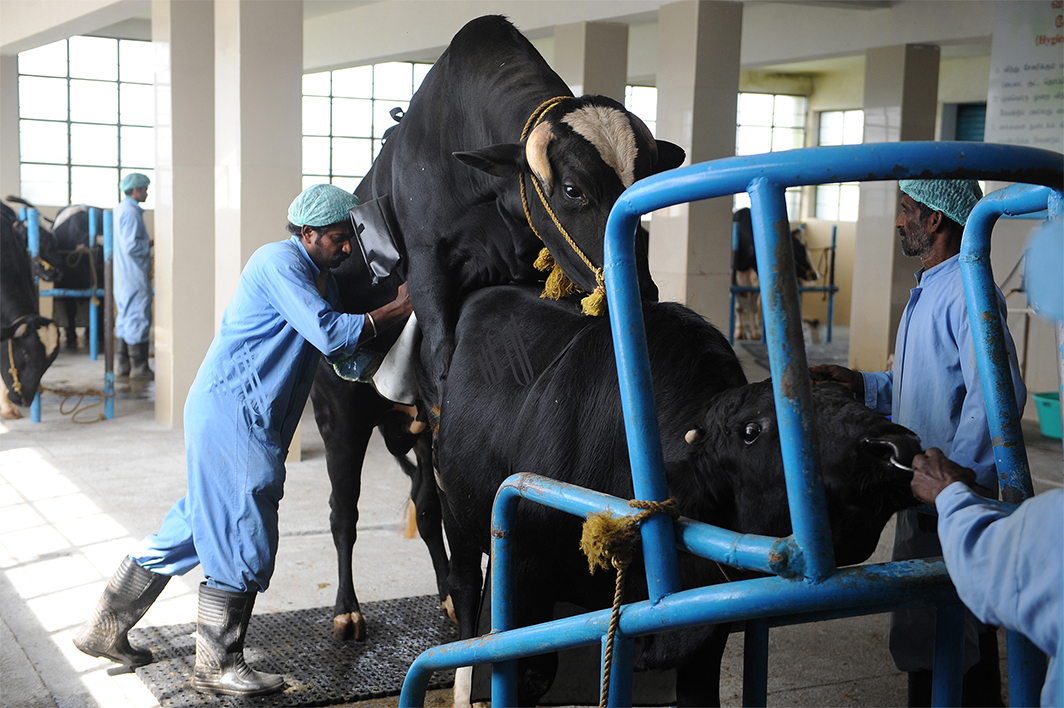
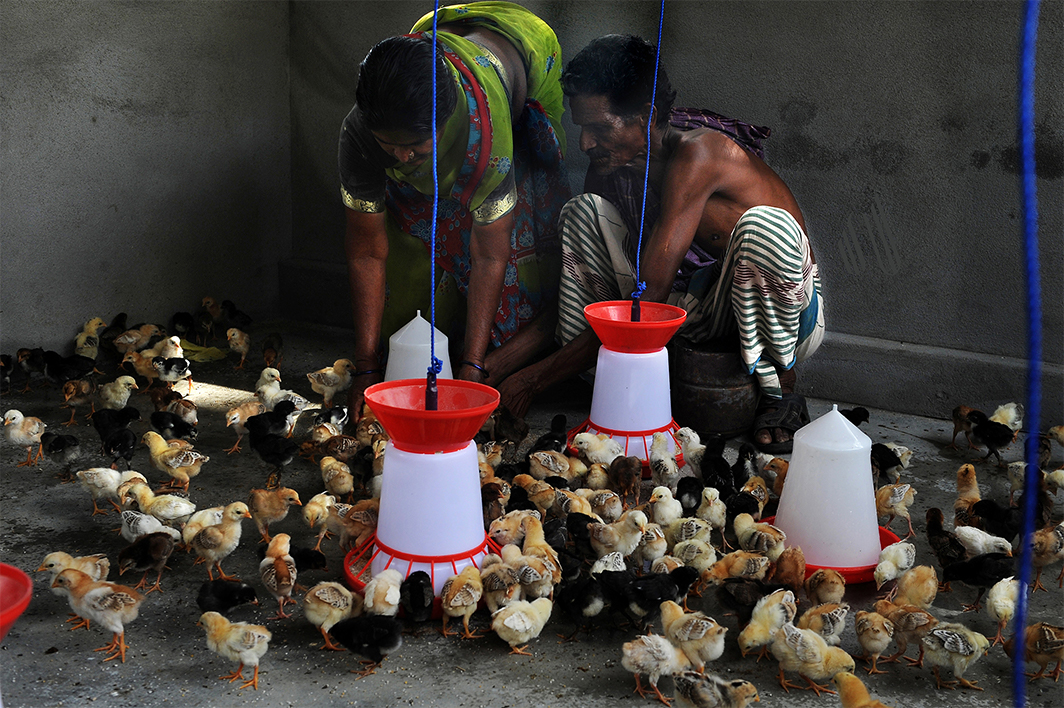
The Department’s efforts to conserve the native breeds of Tamil Nadu have also been well accepted by the farmers. With the intervention of our researchers, the fears of farmers regarding the productivity of native breeds could be effectively allayed. The rearing of native cattle breeds, such as the famed Pulikulam bulls, for jallikattu has also been encouraged in recent years.
Apart from playing a key role in implementing various government programmes for the benefit of rural farmers, the Animal Husbandry department makes technology available at the doorstep of each farmer, Through a network of over 2,700 veterinary institutions, over 875 veterinary sub-centres and mobile units, the department ensures that no farmer is left without the opportunity to make use of the guidance the government has to offer for them.
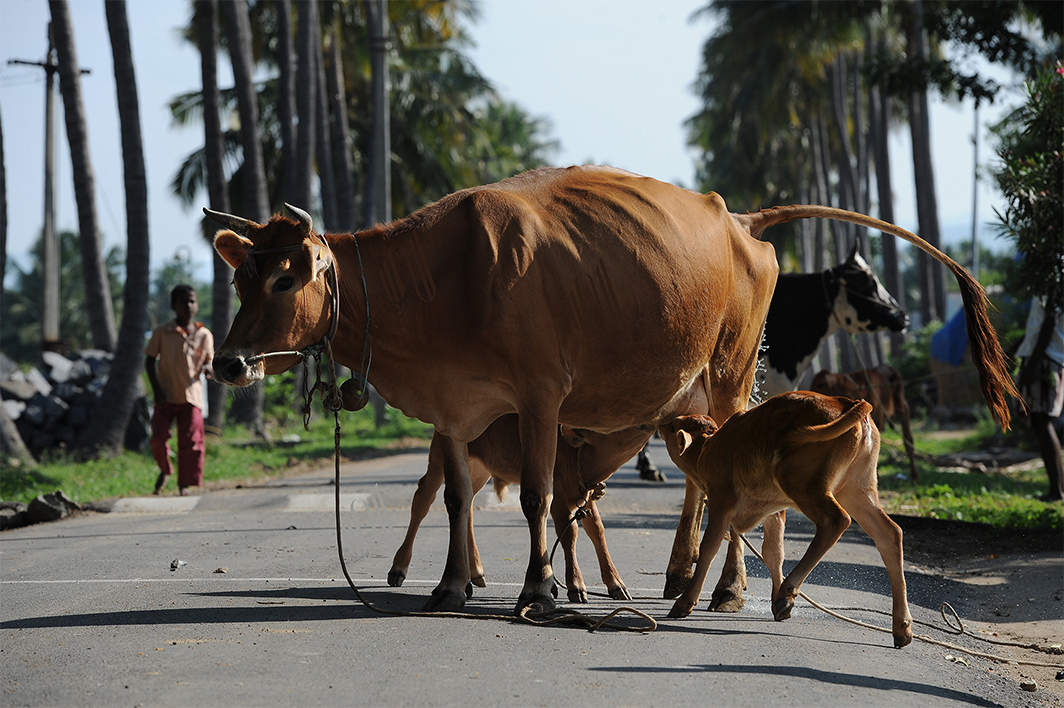
Part of the family
When a cow is brought into a house in rural Tamil Nadu, the people first apply kumkum on its head and perform an arati, an auspicious ritual to welcome someone important to the family. Tamil farmers consider farm animals as part of the family, often calling them by special names, as they would address their children. Farmers will tell you stories of unconditional love, of sacrifices both man and animal make for the benefit of the other. This compassion for animals promotes a kind of brotherhood and unity among rural folks in Tamil Nadu.
The Animal Husbandry department provides Rs. 30,000 to a family to buy a cow or buffalo, and gives free goats to the poorest of the poor, who do not own any land. In discussions with farmers, the officials help them understand the importance of rearing indigenous breeds and also give them the best-yielding crossbreeds. They are offered avenues to market their products at good rates.
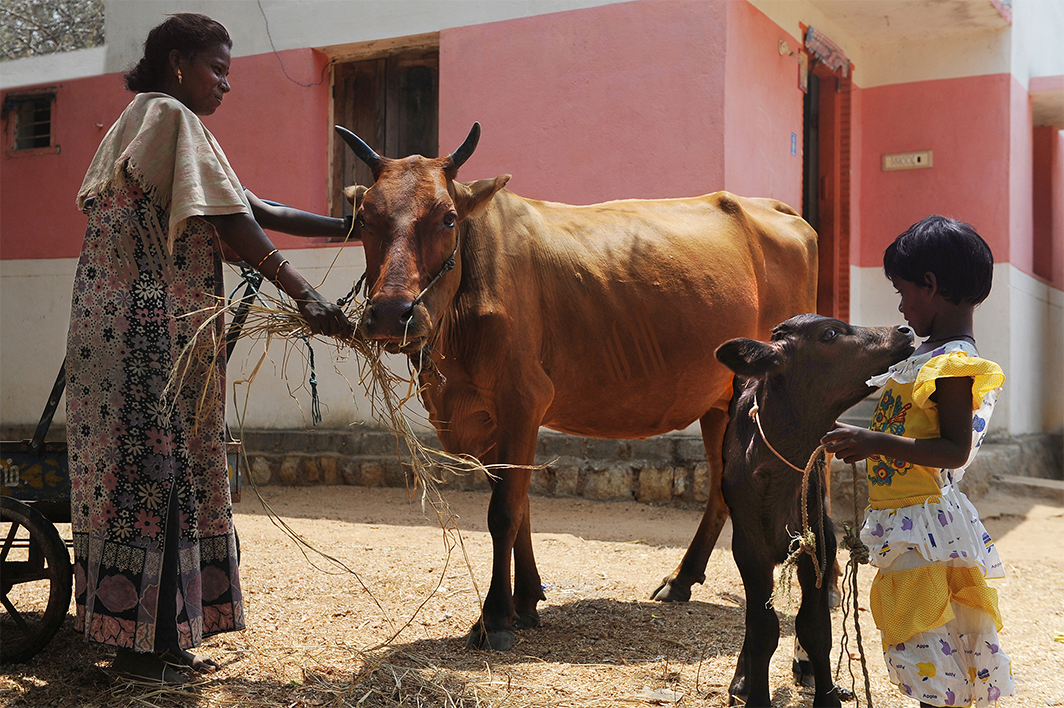

Economic benefits
Feed selection and a fodder development programmes help dairy farmers to achieve sustainability and enhance their profit share per litre of milk sold. The milk cooperative societies ensure better prices for milk produced by these farmers, a system that enables farmers to pursue cattle rearing without any problems and attracts others to take up this activity.
The cattle breeding centres in Tamil Nadu are frequented by customers looking to purchase good quality calves for their farms. The livestock revolution in the State also contributes significantly to improving the nutritional security of rural Tamil Nadu, which once experienced chronic malnutrition, and has helped the landless poor earn a livelihood.


One major impact of the work done by the Animal Husbandry department has been in transforming the lives of rural women. More than 7 lakh women from the weakest economic sections who had no access to land for cultivation, were provided with goats, and several thousands are engaged in poultry farming. Many of these farmers have turned entrepreneurs, often venturing into other businesses with the income earned from these activities. Even educated youths have taken up livestock farming as they see it as an economically viable profession. It has helped recirculation of money in the villages, improving rural infrastructure and overall development in the hinterland.
Working under MGNREGA suits the rural poor at different times of the year and for several reasons. The ‘pros’ of MGNREGA include its local availability throughout the year, relatively ‘easy’ work with fixed and regularly paid wages, equal pay for men and women, and the opportunity to work free from caste-based equations of subordination and discrimination.
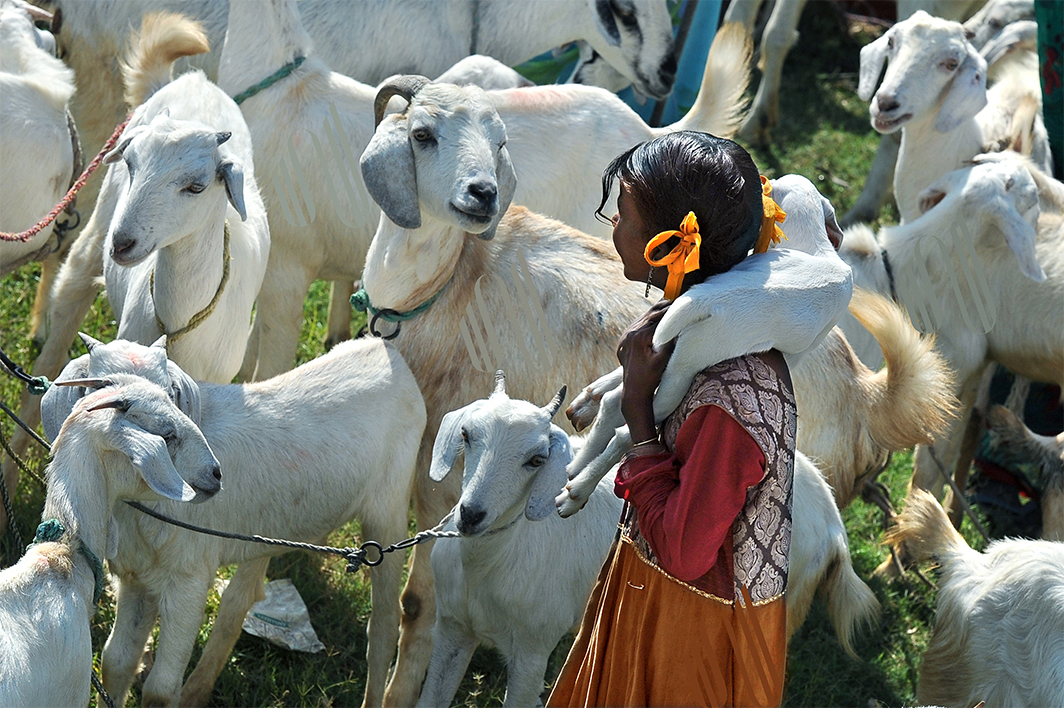
(The images and content related to this theme are based on a project commissioned by the Tamil Nadu Government’s Animal Husbandry Department.)
MORE PROJECTS




